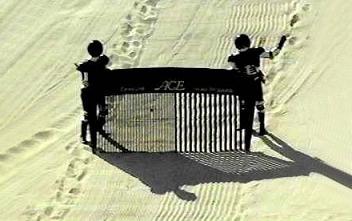In the wake of the cyclone in Myanmar, donors need help.
Google “Myanmar” and you’ll see a huge list of organizations advertising for donations. I don’t know whether they’re coordinating on the ground, but they’re certainly competing when it comes to raising money – and donors, including myself, have virtually nothing to go on in picking one.
Today’s conference call, hosted by Arabella Advisors, had so much interest that it ran out of phone lines (there were hundreds of people listening in). During the Q&A session, they announced that “The single most common question that’s coming in is ‘Tell us who to give money to.’” Their primary answer was to point to a list of InterAction.org list of “vetted” charities – a whopping 46 “recommended” charities, including practically every big name, alphabetically arranged, with small blurbs provided by each charity. (The vetting standards themselves are familiar for their emphasis on accounting and governance; these are important things, but there is absolutely no mention of, for example, charities’ track record in past disasters.) It’s a familiar sight: a generic, non-judgmental set of standards has been used to try and avoid the worst, not to help find the best.
Arabella also brought up the option of consulting “community foundations and other organizations you already trust.”
While I appreciated much of the content of the call, their way of handling this question sounded to me like “Donors, you’re on your own.” I’m guessing the reason the question was so popular is because donors don’t have “already trusted organizations”; they don’t know where to give. That’s certainly the case for our donors, who have been emailing me for advice and even using words like “helpless” and “desperate” to describe how they feel – wanting to help, deluged with appeals, and entirely without means to answer the simple question: “where should I donate?”
Right now, I believe that donors need emergency help. I don’t mean this the way that fundraisers sometimes mean it, i.e., as a plea to help donors feel better about themselves by providing emotional reassurance about their donations. I mean that we need to help well-meaning people help others, by understanding that they don’t have a pre-existing wealth of knowledge about Myanmar, that they don’t have a pre-existing commitment to and knowledge of the best aid organizations, by understanding that they just want to help in the best way possible – and, therefore, by giving substantive, well-supported, specific recommendations for where to give.
We’re looking into whether we’ll be able to provide such recommendations, in a relevant time frame. In the meantime, I haven’t found any philanthropic experts giving donors the help they need.

